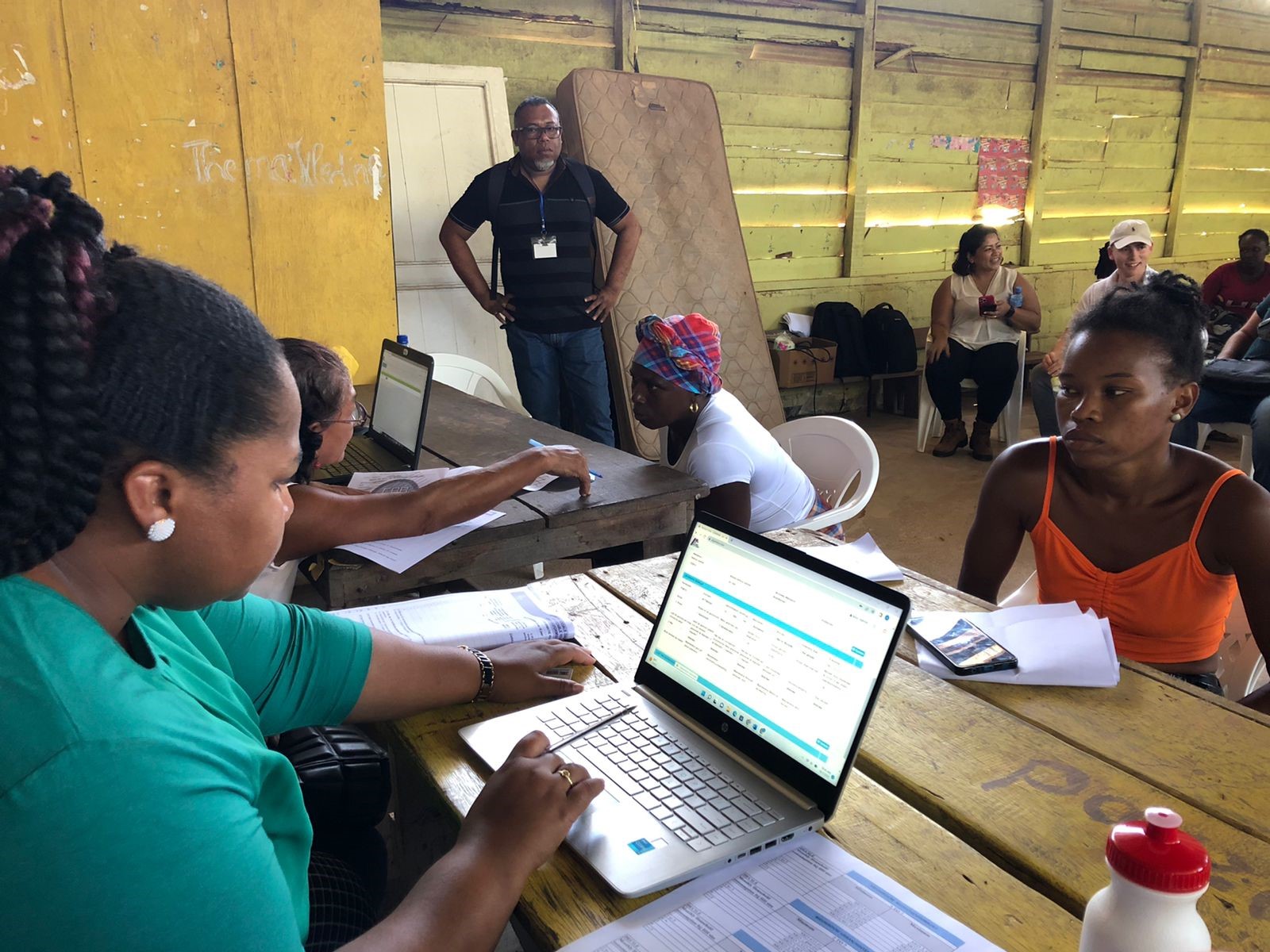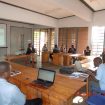Publication: Jan 2025 Inputs for the Comprehensive Community Relations Plan for Drilling and Oil Exploitation Platforms SOPROEN proposes a ten-year Comprehensive Community Relations Plan (PIRC) to address longstanding conflicts between oil companies and impacted communities. The plan focuses on fostering harmonious coexistence, promoting sustainable development, and ensuring continuous support for local populations. It emphasizes social infrastructure projects that preserve the environment, strengthen household capacities, facilitate access to social services, and provide effective emergency responses. Aligned with national and local government social protection programs—and recognizing their operational and coverage limitations—the PIRC is designed to complement rather than replace these initiatives. In this way, it supports medium-term positive outcomes by reinforcing community well-being, mitigating inequalities, and helping compensate for the impacts of natural resource extraction. The PIRC rests on three core pillars: Community Engagement Programs: Short-term initiatives that foster collaboration and yield rapid, visible benefits for local stakeholders. Household and Individual Capital Development: Strengthening physical (infrastructure, technology), human (education, skills), cultural (traditions, values), social (networks, trust), natural (land, water, forests), and financial (income, savings) capital. Social Assistance: Support for vulnerable households during emergencies and disasters, ensuring reliable protection in critical situations. By coordinating these pillars, the PIRC seeks to create a supportive framework that enhances local capacities, respects environmental limits, and sustains the development of communities in resource extraction areas. You can read and download the full article below: Download Article ...
Publication: July 2024 A New Paradigm for Corporate Social Responsibility Practices in the Oil and Mining Industry in Latin America Corporate Social Responsibility (CSR) in Latin America’s oil and mining industries is crucial for sustainable development and community engagement. These industries operate in regions with impoverished populations and sensitive ecosystems, leading to significant social and environmental impacts. Increasingly, companies face opposition from environmental and social groups who demand better practices and stricter regulations due to concerns about ecological damage and social disruption. Despite CSR regulations and enforcement by governments, local dissatisfaction has grown over the past decade. Communities often perceive CSR efforts as inadequate and lacking genuine engagement. For example, protests around Peru’s Las Bambas copper mine highlight the disconnect between CSR promises and community expectations. Such protests have disrupted operations and reflect deep frustrations about environmental and living conditions. The technical note explores the gaps between CSR actions and community protests. It reviews typical CSR practices, challenges faced by companies, and their impacts on local well-being. SOPROEN proposes a new approach to the concept of social license to improve CSR effectiveness and foster better long-term relations between companies and affected communities. You can read and download the full article below: Download Article ...
Publication: May 2024 Leveraging SIMS For Emergency Interventions in Malawi: A Case Study of Rapid and Effective Response The Social Interventions Management System (SIMS), developed by SOPROEN, is essential for efficient emergency responses in Malawi. Its ability to quickly process large amounts of information has improved the government’s response to disasters like floods, droughts, and cyclones. This paper discusses how SIMS supports cash transfer programs during emergencies, highlighting its benefits and outcomes in various responses. During natural disasters or pandemics, governments and agencies provide relief through cash transfers, which are efficient but face challenges such as limited personnel, time, and software capabilities. In Malawi, frequent floods and droughts have historically complicated aid distribution. The Ministry of Gender, Community Development & Social Welfare (MoGCDSW) has used various interventions, with SIMS by SOPROEN playing a key role. SIMS, developed by SOPROEN, is a comprehensive software solution for emergency interventions. It facilitates rapid setup of cash transfer programs, data collection, and benefit distribution. The initial version, SIMS 1.0, includes modules for administration, targeting, enrollment, payments, case management, reporting, and more. In 2024, SIMS 2.0 was released with enhanced flexibility and new features like advanced ranking and community validation, allowing for tailored project designs across different regions. You can read and download the full article below: Download Article ...
Publication: April 2024 Moving to a New School of Thought: Precise Social Assistance The article outlines the historical evolution of social protection systems, starting with informal arrangements in the pre-twentieth century, followed by the emergence of formal structures like the welfare state in Europe. The post-World War II era saw significant expansion in social protection systems, categorized into contributory and non-contributory interventions. The World Bank defined non-contributory interventions as social safety nets, targeting the poor and vulnerable with programs like cash transfers, food stamps, and public works. However, concerns arose in the twenty-first century regarding the efficacy of these systems. Researchers noted a disconnect between the assistance provided and the actual needs of the poor and vulnerable. This led to a call for exploring alternative, demand-side-oriented interventions, emphasizing active participation and voices of the beneficiaries. The Referrals and Linkages mechanism and the comprehensive grievance and redressal mechanism were introduced to facilitate the active participation of the poor and vulnerable in finding solutions to their long-term and urgent needs. These mechanisms aim to empower individuals to voice their concerns, complain, request assistance, and simplify interactions with service providers. The goal is to develop comprehensive social protection systems that integrate both supply-side interventions and demand-side mechanisms, addressing both long-term and short-term needs. However, the text acknowledges the challenges in implementing such systems and mechanisms, emphasizing the need for advanced technology, technical assistance, coordination, and efficient interventions. Download Article ...








